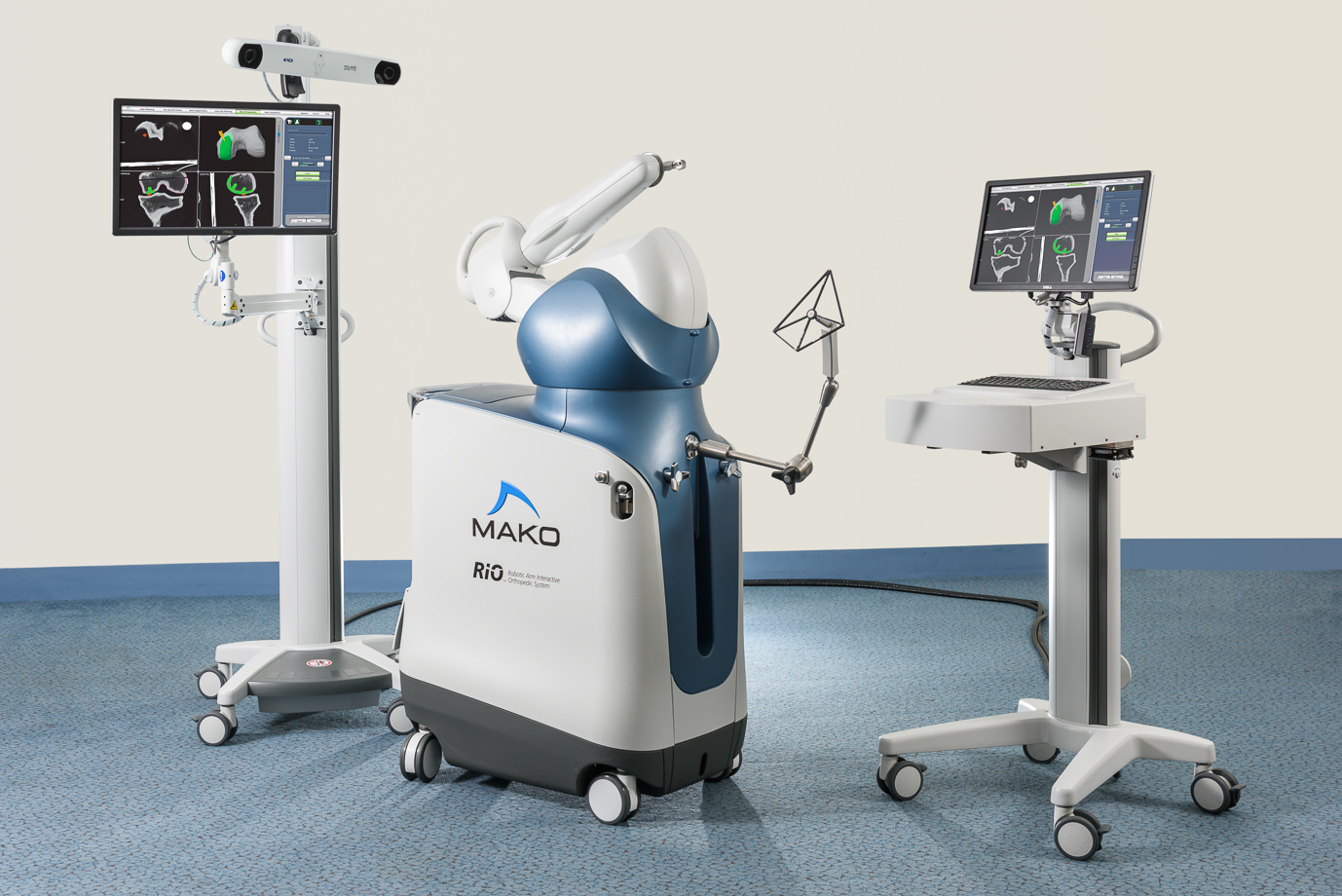“For us
it’s always about innovation,” says Stryker CEO Kevin Lobo. In a recent CNBC interview, Mr. Lobo begins by revealing Stryker’s growth in the
market against their competitors, growing north of five percent for the last
seventeen quarters. This is especially the case for their knee replacement
technology, in which Stryker is using robotic assistance in their operating
rooms in order to obtain a more precise placement of the implant. As a result,
the patient will come out of a surgery with less soft tissue damage, giving
them a faster and less painful recovery process. This major breakthrough in the
Medtech industry reveals a promising future for society, as companies such as
Stryker are raising the standard for surgical procedures and equipment.
 |
| Stryker's Mako Robot |
However,
Mr. Lobo explained that training is a significant challenge while introducing
robotic assistance, as it requires a complete change in behavior among
surgeons. The modified procedures entail a new stance in the operating room,
along with changing the implant itself. Instead of traditional knee
replacements that follow an oval motion, Stryker’s implants are designed to
have a natural circular motion. For example, a significant feature of Stryker’s
Triathlon Total Knee is their patent pending anatomic radius, which improves the motion of the knee.
 |
| Fred Funk, Professional Golfer |
Meanwhile, about fifteen years ago Gloria Slass, the wife of the late Founder of Rotor Clip Company Robert Slass, was in dire need of a knee replacement . Due to many tennis injuries accumulated over the years, Ms. Slass underwent an excruciating knee replacement surgery in the early 2000s. During her recovery process, she developed arthritis in the knee due to soft tissue damage. Unfortunately, after recovering Ms. Slass had to give up her lifelong passion for tennis due to the severe pain. The lack in medical robotic assistance at this time was the result of a more invasive surgery. Based on the two anecdotes, the evolution in the medtech industry represents a bright future ahead for healthcare, as it is ensures a better tomorrow for patients.
Beyond
orthopaedics, another innovative field that Stryker is taking by storm is
neurotechnologies. Mr. Lobo explains how their technology can treat two types
of strokes that can occur. For instance, in the result of a Hemorrhagic stroke,
titanium coils are packed in the aneurism in order to allow blood flow. As for
an Ischemic stroke, the
procedure would entail the removal of clots from the brain using a stent. Therefore,
with the ability to treat an often debilitating condition that results from a
stroke, Stryker takes great pride in their advancement in neurotechnologies.
Generally, the victim of a stroke is left impaired, which costs the healthcare
system a significant amount of money.
That
said, although Stryker is not necessarily concerned with how the healthcare
system evolves, they are still working to reform it through innovation, as a
means of cutting costs for it. Towards the end of the interview, Mr. Lobo
stresses the importance of permanently repealing the medical device tax, which
has previously been suspended in the past. In conclusion, as an OEM supplier,
we here at Rotor Clip fully support and are proud of our fellow American
manufacturers for making the world a better place through innovation.
Evan Slass is a Digital Marketing
Communications Specialist for Rotor Clip Company.
No comments:
Post a Comment